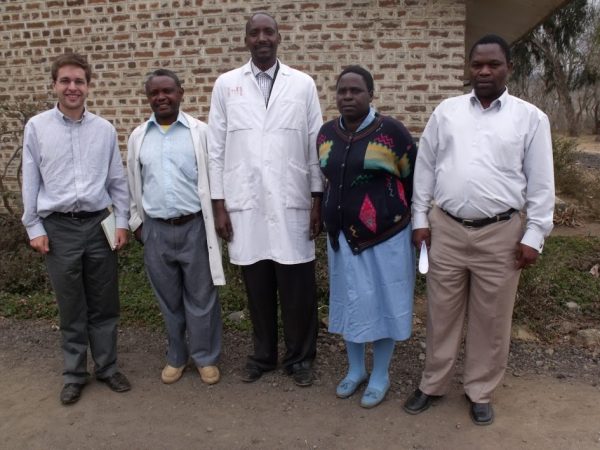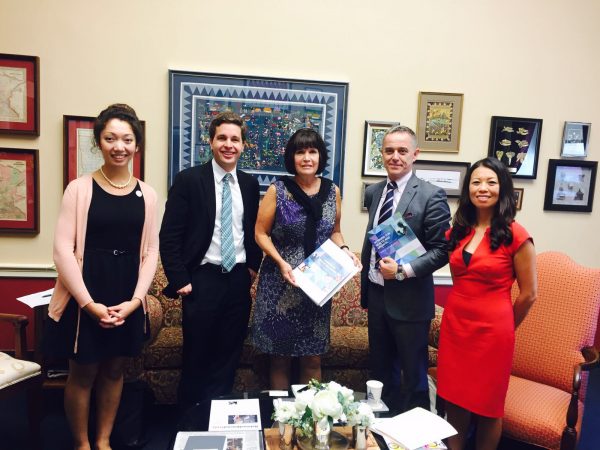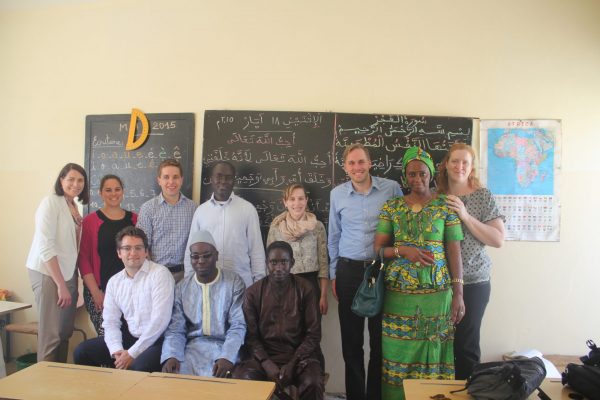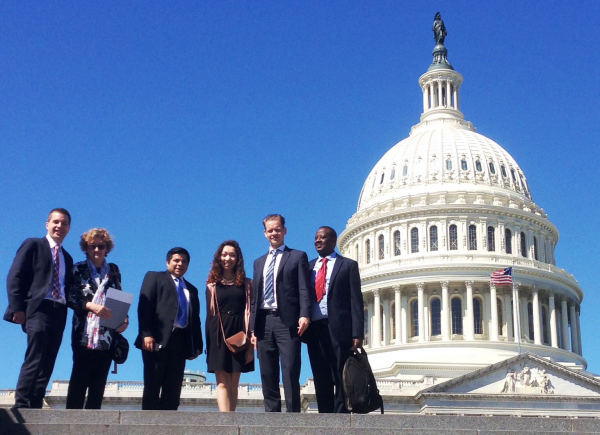For many of us, a doctor or a nurse is just a quick drive away. But in many parts of the world, a family might walk for days to access a treatment vital to their survival or an immunization to protect their child.
In fact, more than 400 million people lack access to the essential services provided by trained and supported health workers, meaning that millions of people, often children under five and women in childbirth, die each year from conditions that are easy to treat and prevent.
As the director of Frontline Health Workers Coalition, and as an advocacy advisor at IntraHealth International, Vince Blaser (’04, Journalism and Media Communication) is using the skills he developed at Colorado State University to advocate for improved access to health workers for millions of people in low- and middle-income countries like India, Senegal, Guatemala, and Mali.
Frontline health workers, typically trained locally, are a cost-effective way to assist local populations in living long and healthy lives. Many are community health workers and midwives, though they can also include local pharmacists and nurses and doctors who serve in community clinics. Some are volunteers or work for little pay, but if properly connected and empowered in their country’s health system, can unleash massive economic and health improvements for their communities and themselves.
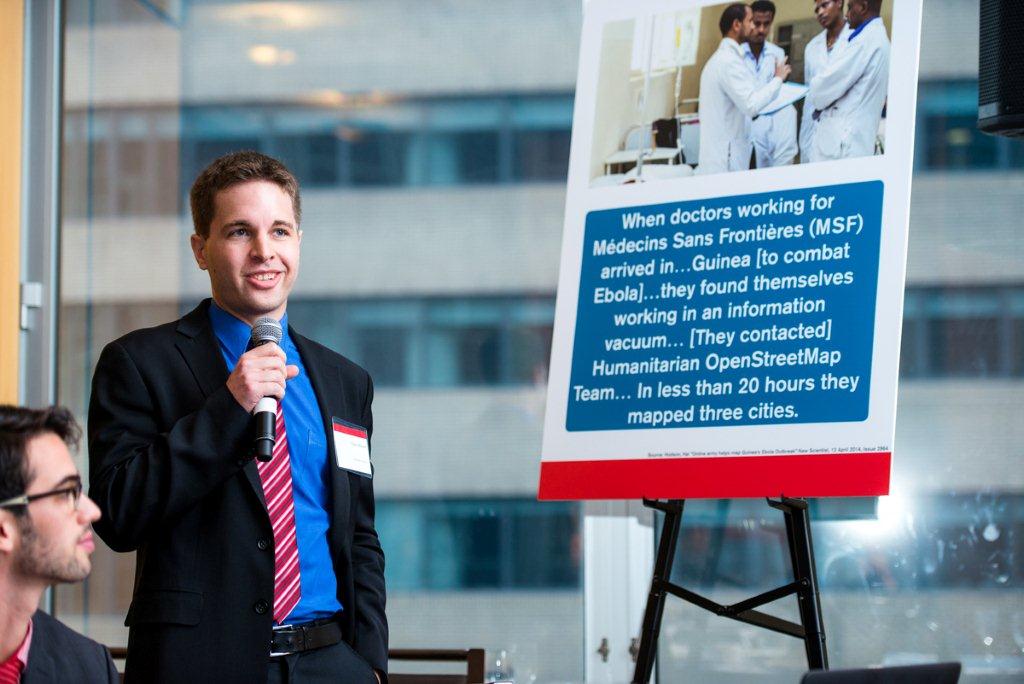
At CSU, Blaser double majored in political science and journalism. Through his political science education, he learned about complex government landscapes. Training in the journalism department, at the Rocky Mountain Collegian, and as a news intern and reporter helped Blaser refine his writing skills. In addition, he learned to manage deadlines and hone the soft skills he needed to complete projects.
“I’m a naturally shy person, but that really changed during my time at CSU in the journalism department,” he says. “In classes, at the Collegian, and during college internships and jobs, I was forced to work through my shyness and approach random strangers for interviews.”
The skills Blaser learned on campus are the same ones he used at his first professional job as staff writer at the Kaiser Family Foundation, writing daily reports on global health and HIV/AIDS, and in his career today.
“I love the challenge of taking neglected or complex issues and helping them make sense to people and motivate them to act,” he said.
Today, the audiences for Blaser’s communications efforts include U.S. Congressional aides and global health political and technical leaders. He synthesizes complex information and makes it understandable to others, such as explaining how investing in an increase of health workers in remote settings can help prevent the spread of diseases like ebola and tuberculosis.
Much of his focus is to persuade elected officials, nonprofits, private sector companies, and advocacy organizations to push for better policies to improve access to frontline health workers.
“The relatively little investment made by the US government and others – far less than one percent of the US budget goes to global health efforts – has led to massive improvements, like cutting childhood deaths by more than half, and halting dangerous disease outbreaks in their tracks,” Blaser says. “But the lives we’re still losing are the hardest to reach, which is why focusing on developing a responsive, locally attuned frontline health workforce is so important. It’s also proven to show a nine-to-one economic return on that investment.”
One project Blaser’s organization IntraHealth launched is a suite of open source software called iHRIS. Health ministries can adapt the software’s modules to track different aspects of their health workforce. Before the software was created, many countries’ officials simply couldn’t easily determine where all their health workers were based, what their training credentials were, where they had vacancies, or even if they were paying health workers no longer employed. iHRIS – supported by the US Agency for International Development – has saved dozens of countries hundreds of millions of dollars in proprietary software costs and has helped countries deploy health workers where they’re most needed.
The Frontline Health Workers Coalition that Blaser leads highlights successes like these to advocate for greater and more strategic investment into addressing the most severe health worker shortages. Their efforts have, in part, led to new strategies and investments by the US government and the first-ever global health workforce strategy unanimously agreed to by the world’s health ministers called Workforce 2030.
“It’s an honor when I get to meet and work with frontline health workers,” Blaser said. “It keeps me inspired and reminds me why I love my job.”
Learn more about the Department of Journalism and Media Communications.

